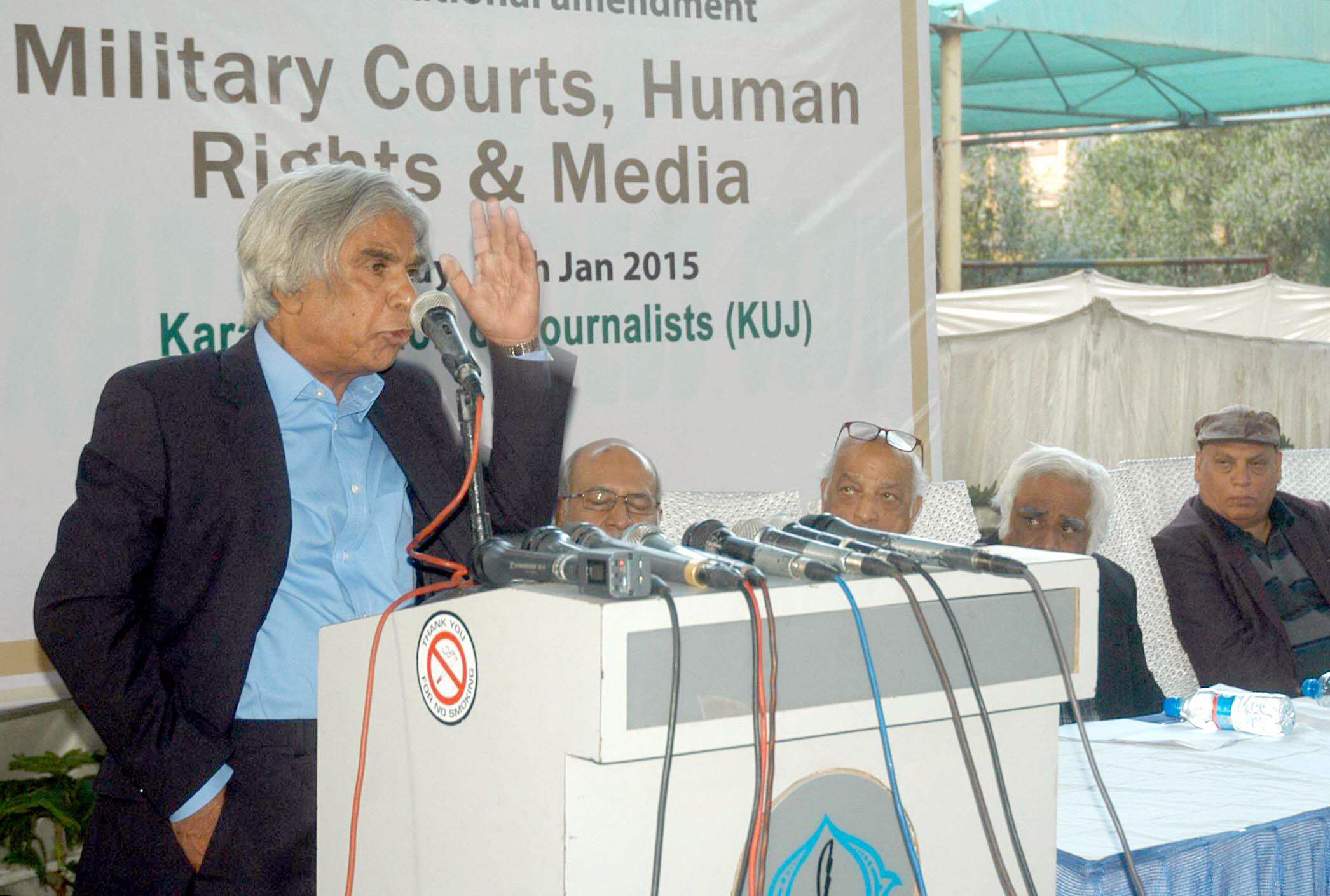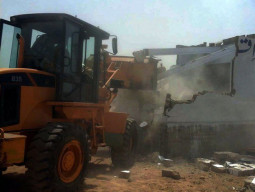
Military courts came under attack as journalists and activists expressed concerns about the fairness of the trials at a seminar titled ‘Military Courts, Human Rights and Media’, organised by the Karachi Union of Journalists at Karachi Press Club. The speakers feared that reporters will not be able to cover hearings while the public’s right to know will be curtailed and the accused will not have the opportunity to appeal.

“The two responses of the government — carrying out executions and the formation of military courts — are impulsive and lack long-term planning,” said Yusuf. “The belief that military courts can do within two years what the civilian courts could not do only reinforces the myth that the military is superior.”
She said that the armed forces had old ties with extremism, pointing out that despite heavy military presence in Balochistan, Lashkar-e-Jhangvi activists roamed around freely while the army went after Baloch youngsters. “How can the agencies involved in creating and training the extremists be trusted to eliminate them?”
Tracing the history of military courts in the country, Professor Tauseef Ahmed said that they offered no right to information. He said that the first military courts were established when riots erupted against the Ahmadis in Lahore and martial law was briefly imposed. “Maulana Maududi was tried and orders were given for his execution by a military court but no journalist was allowed to go to court for the trials.”
He said that military courts only strengthened ‘press release journalism’ as reporters were not allowed to cover the proceedings and were left dependent on press notes.
“The forces have said that the courts will be established in cantonment areas but have not disclosed the locations,” Ahmed said. He pointed out that in the case of Jam Saqi, journalists had been allowed to listen but could not independently report, instead they had to get their stories approved by presiding officers. “If reporters are not allowed to cover the hearings, militants will take advantage of the situation.”
Lawyer Ali Ahmad Kurd said that courts were meant to provide justice but there was no system of appeal in military courts. “There can be no justice without appeal,” he said. “Who can say if the punishment is right or wrong, or if justice is being provided?”
Journalist Idrees Bakhtiar said that democratic governments should not form military courts. “Justice Marri in his book had written that a man was once executed for murder even though the person who had allegedly been killed came to court and said that he was still alive,” he said.
Published in The Express Tribune, January 19th, 2015.
COMMENTS (1)
Comments are moderated and generally will be posted if they are on-topic and not abusive.
For more information, please see our Comments FAQ

1732274008-0/Ariana-Grande-and-Kristin-Chenoweth-(1)1732274008-0-165x106.webp)















Ali Khurd. ...do you think your clients has done an average job